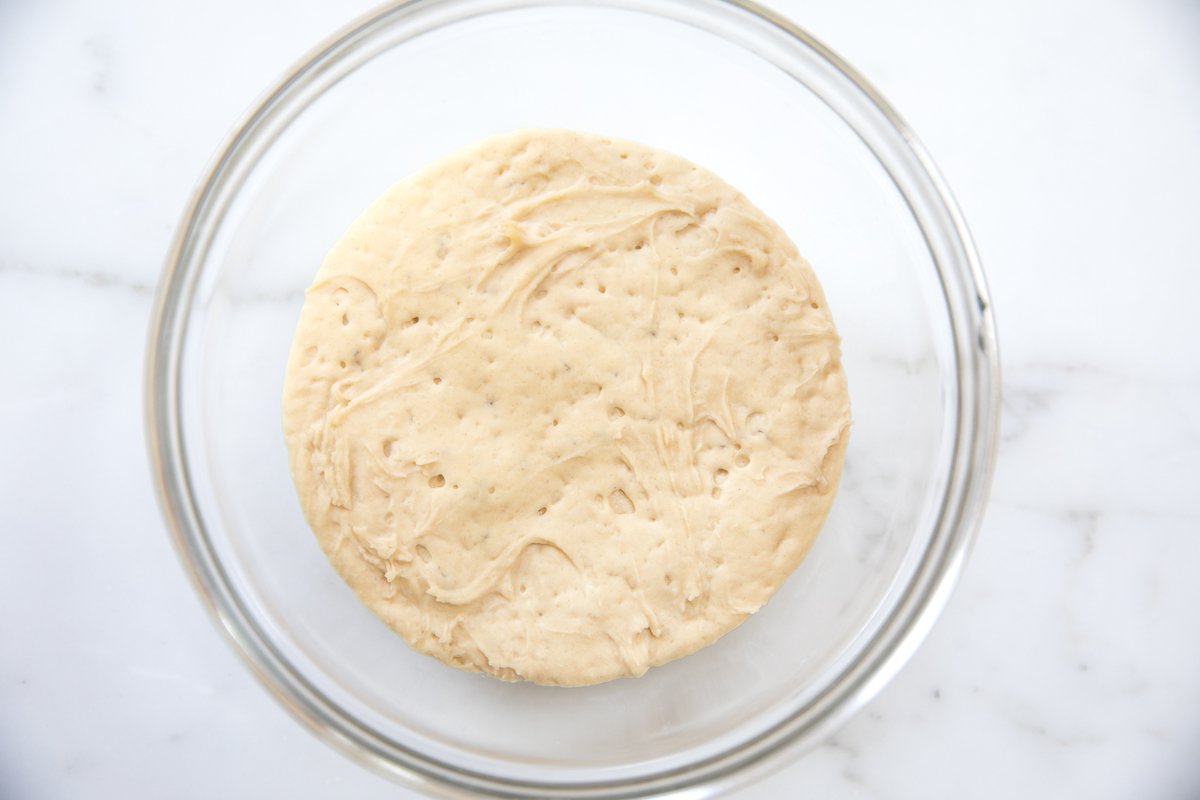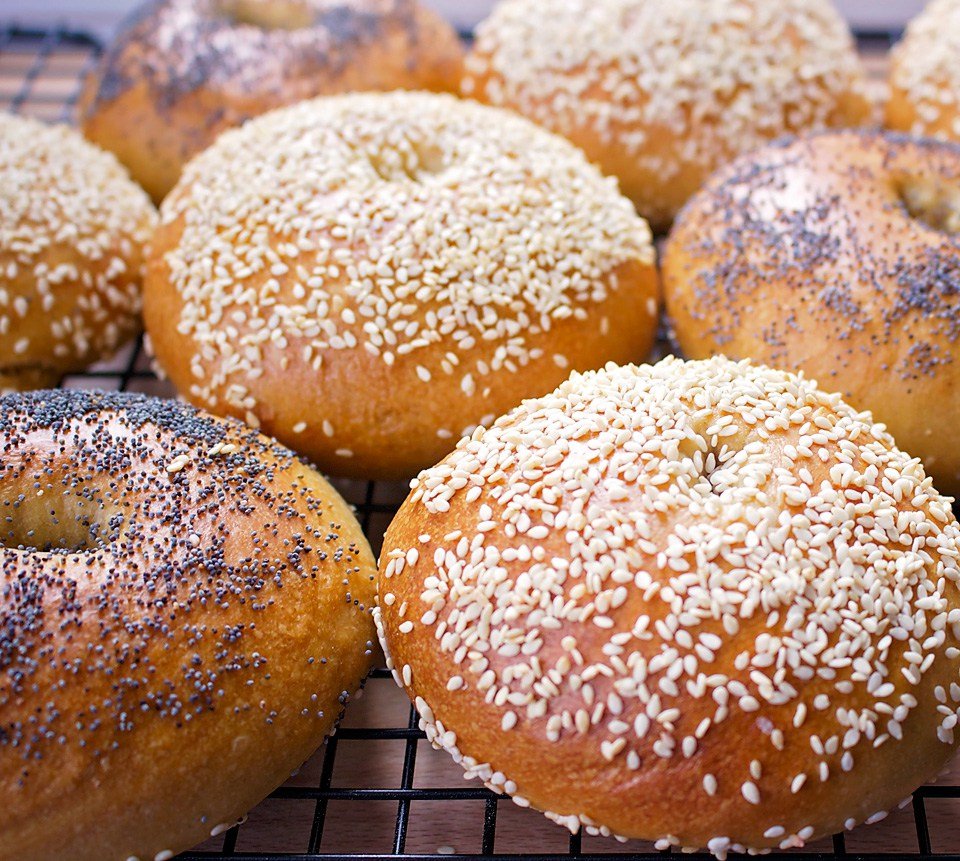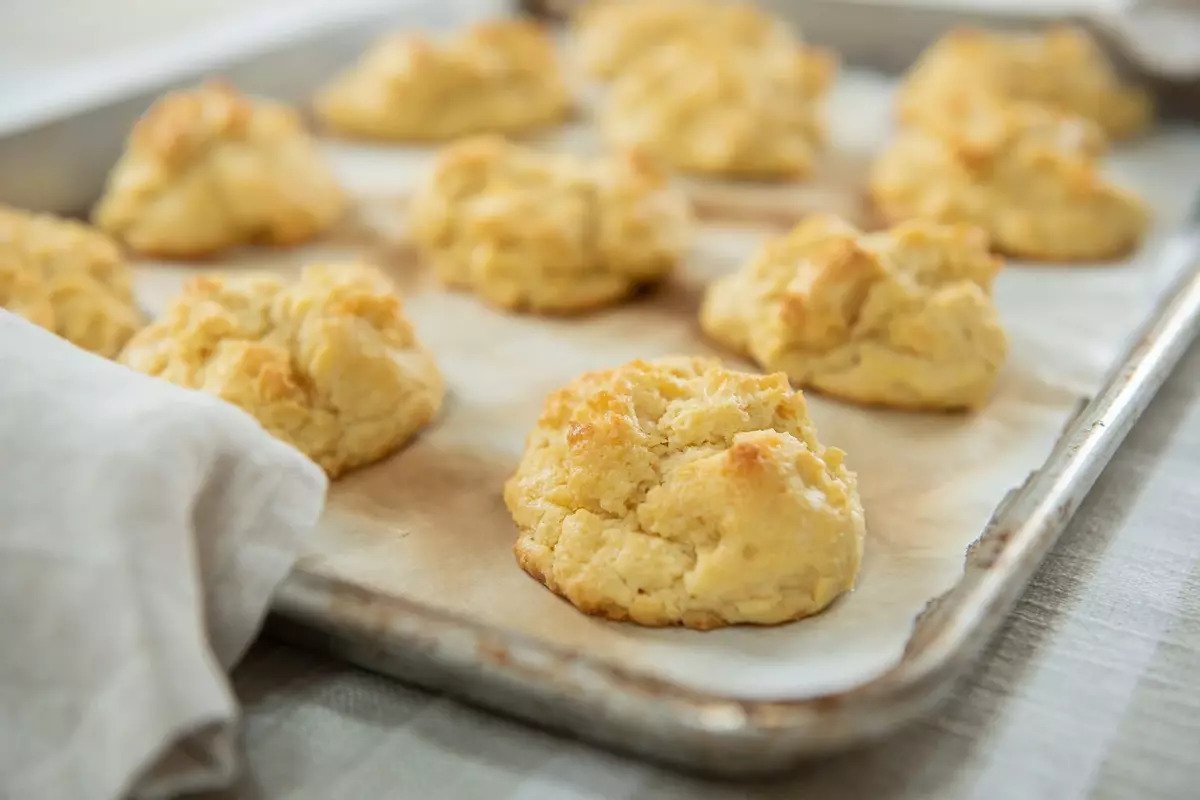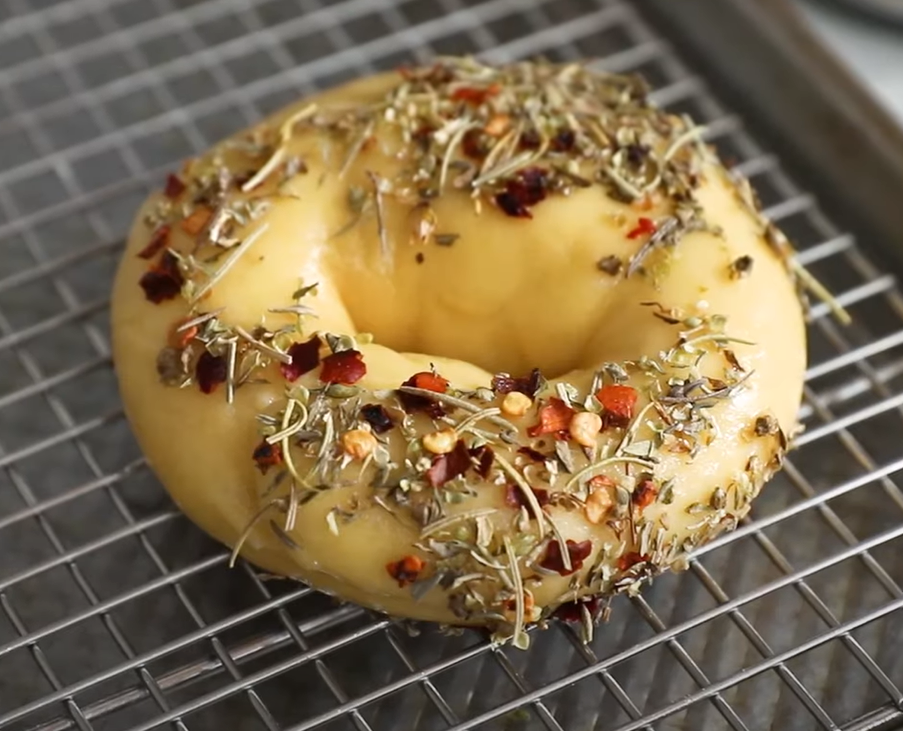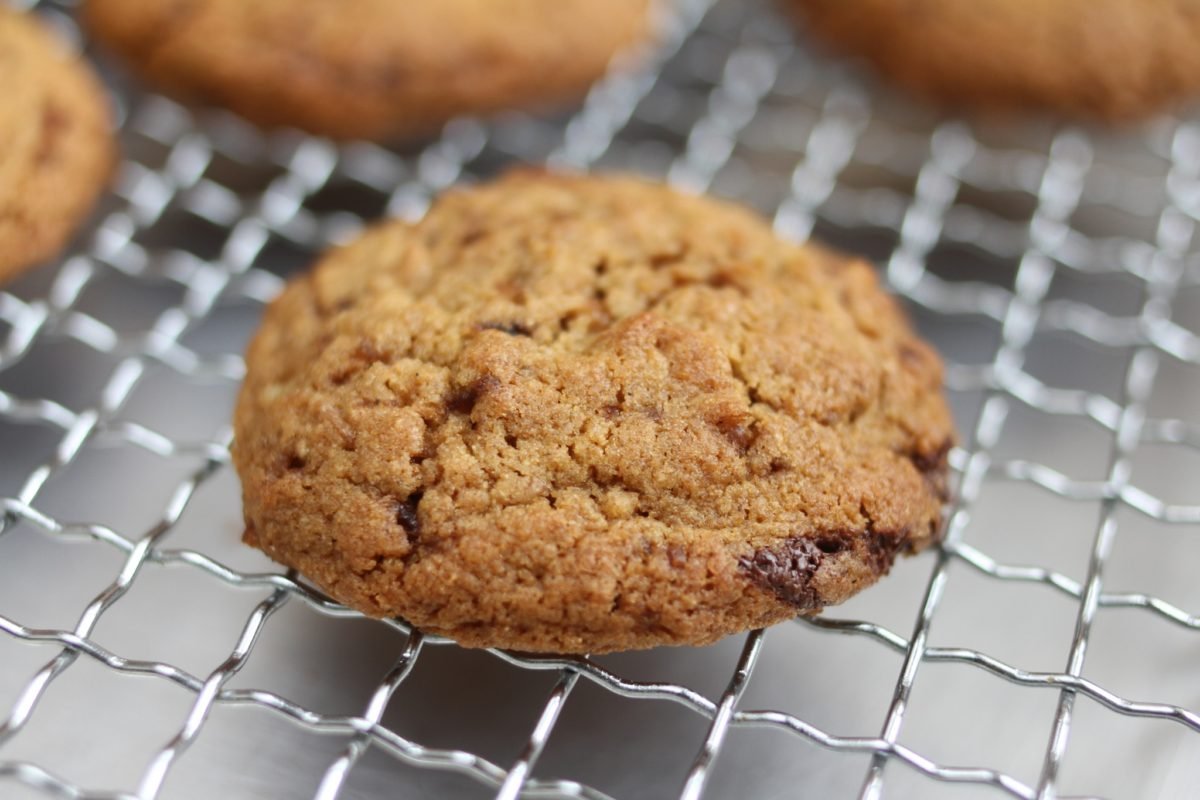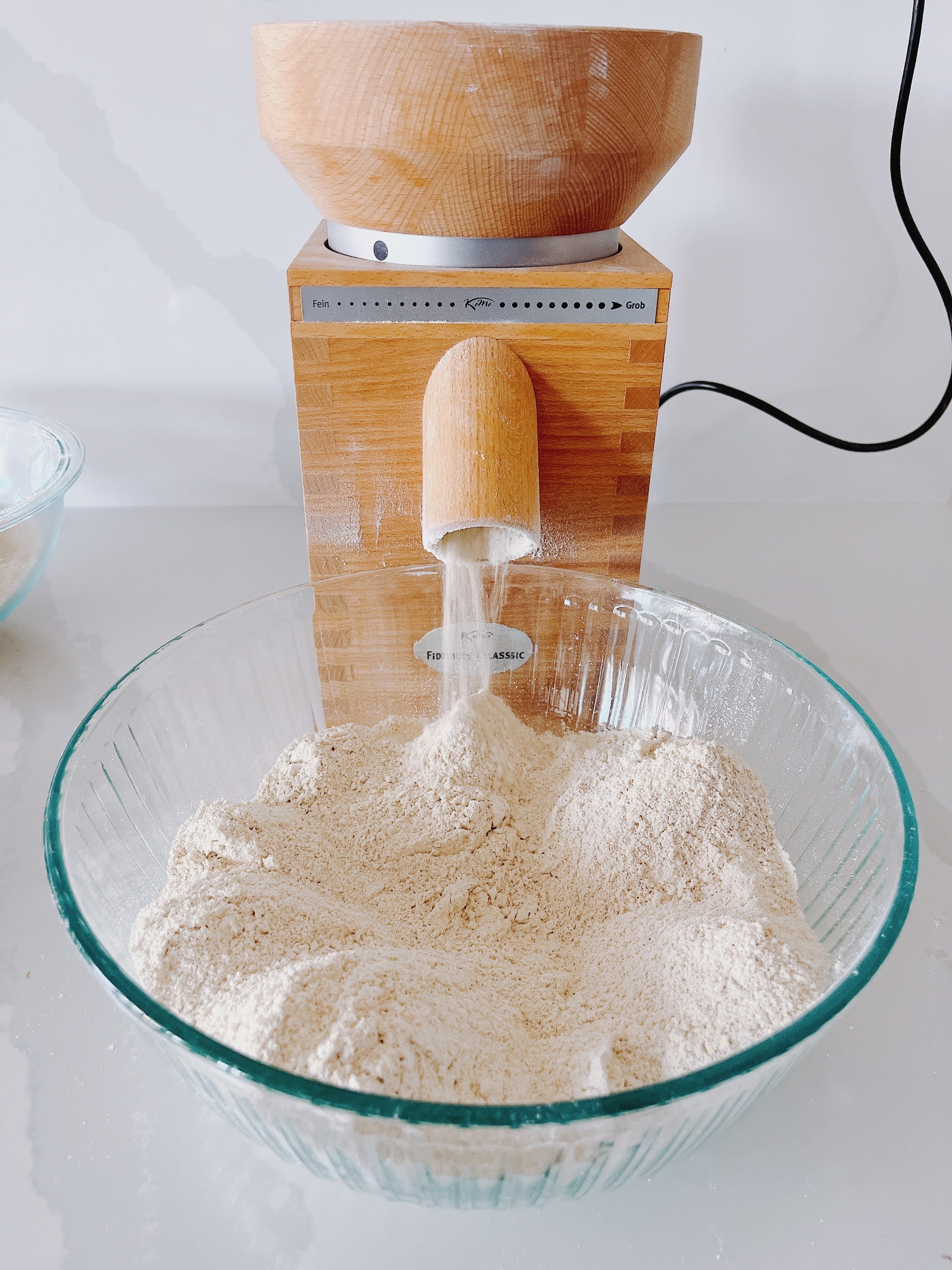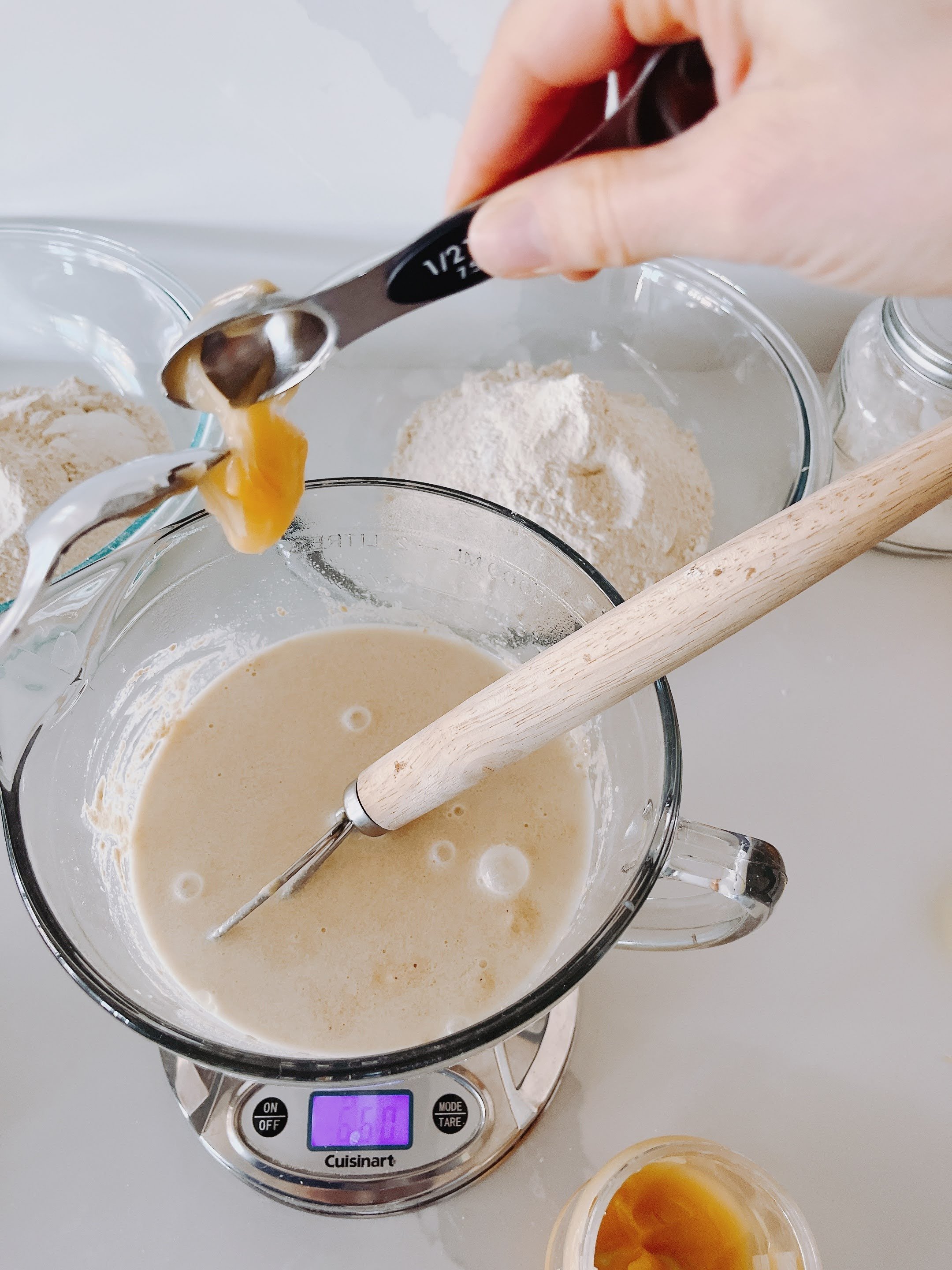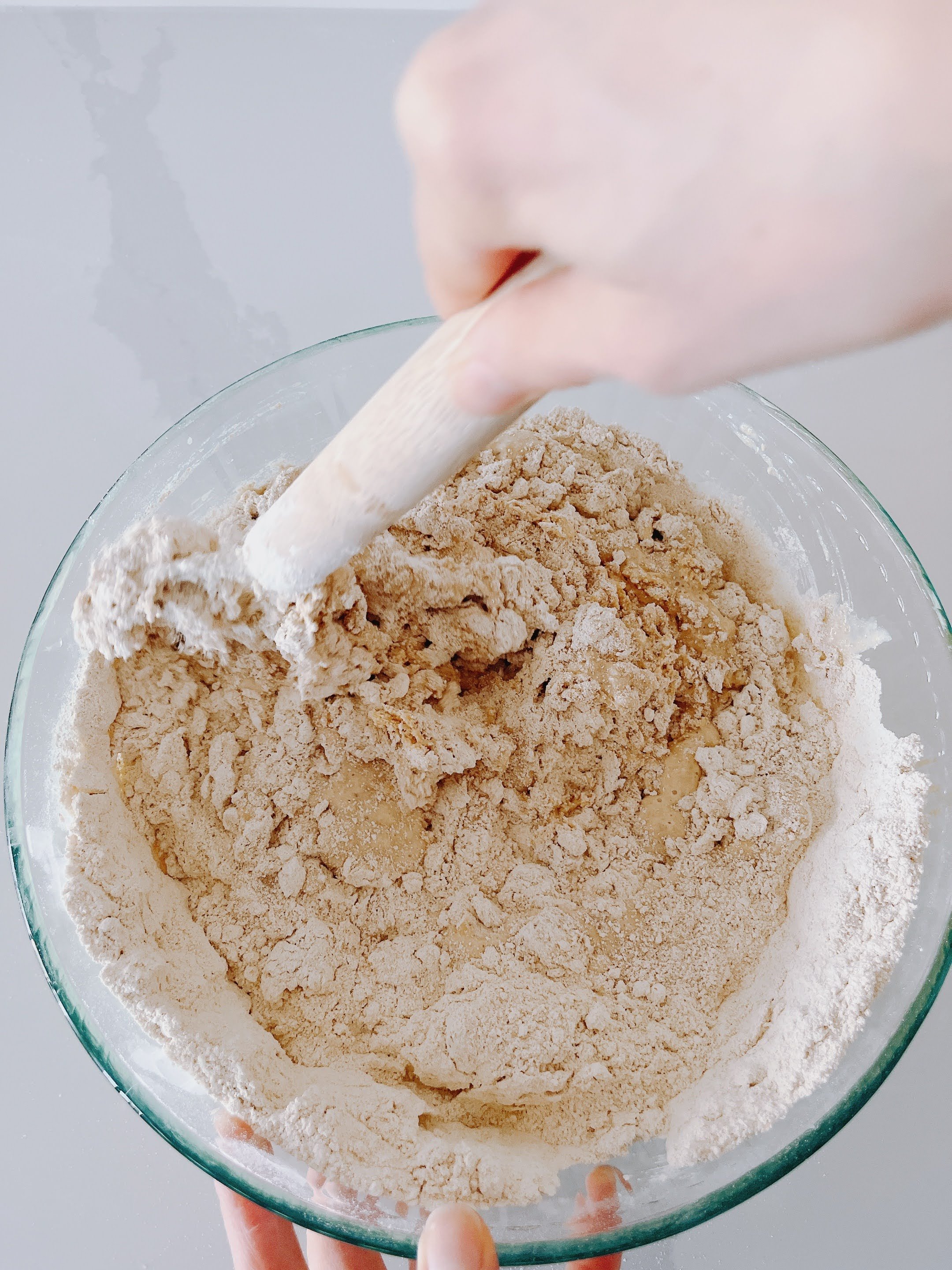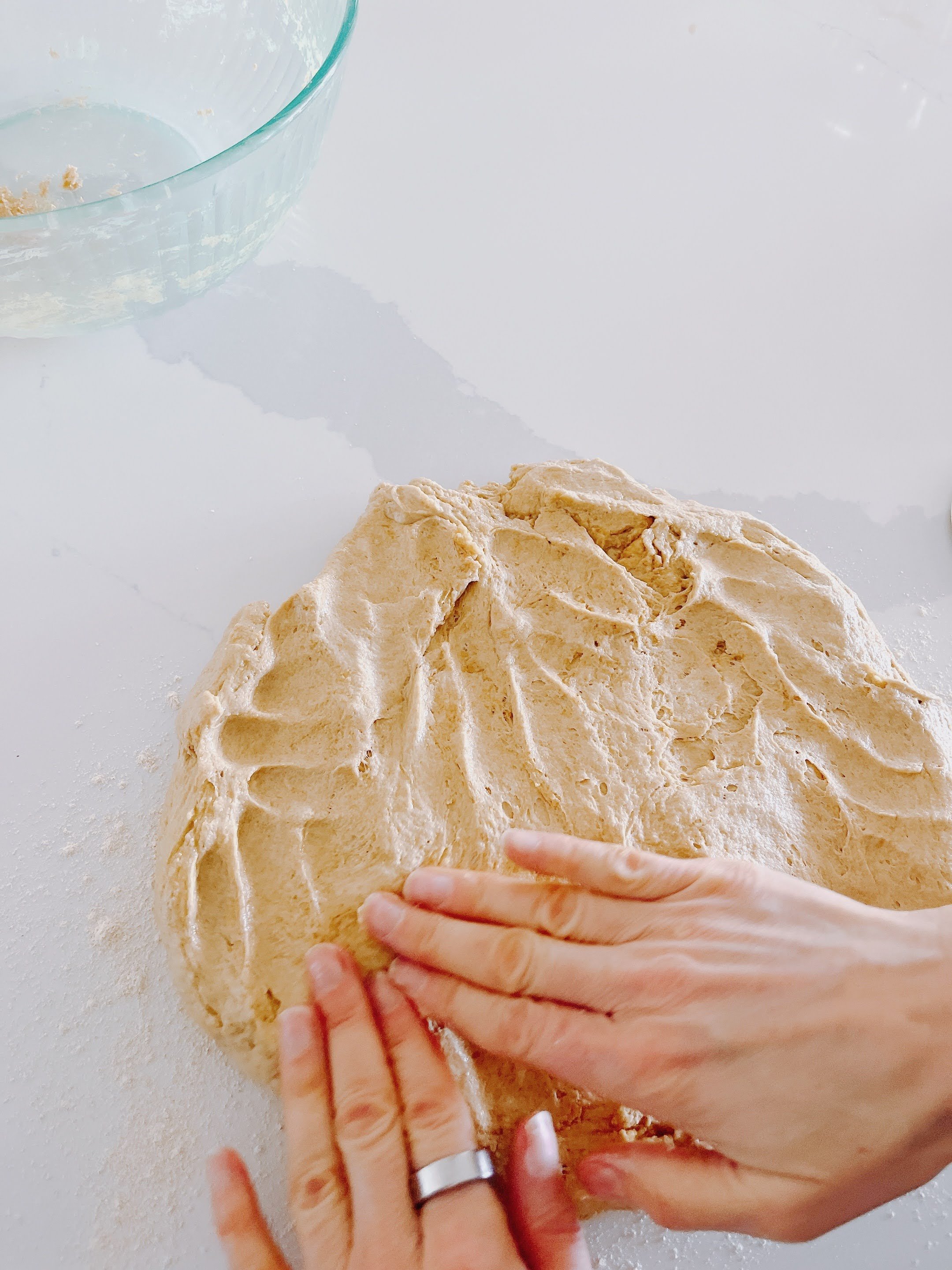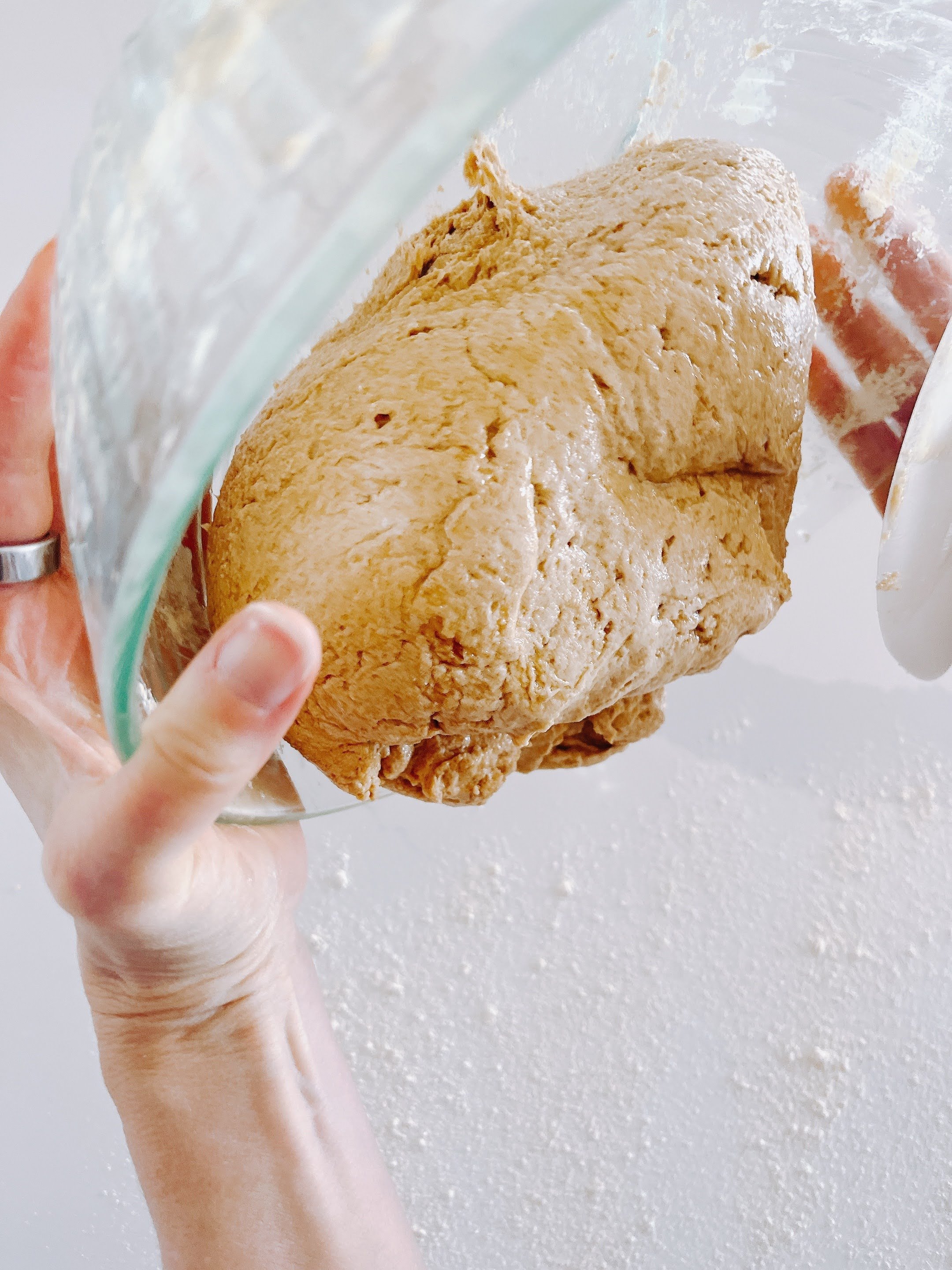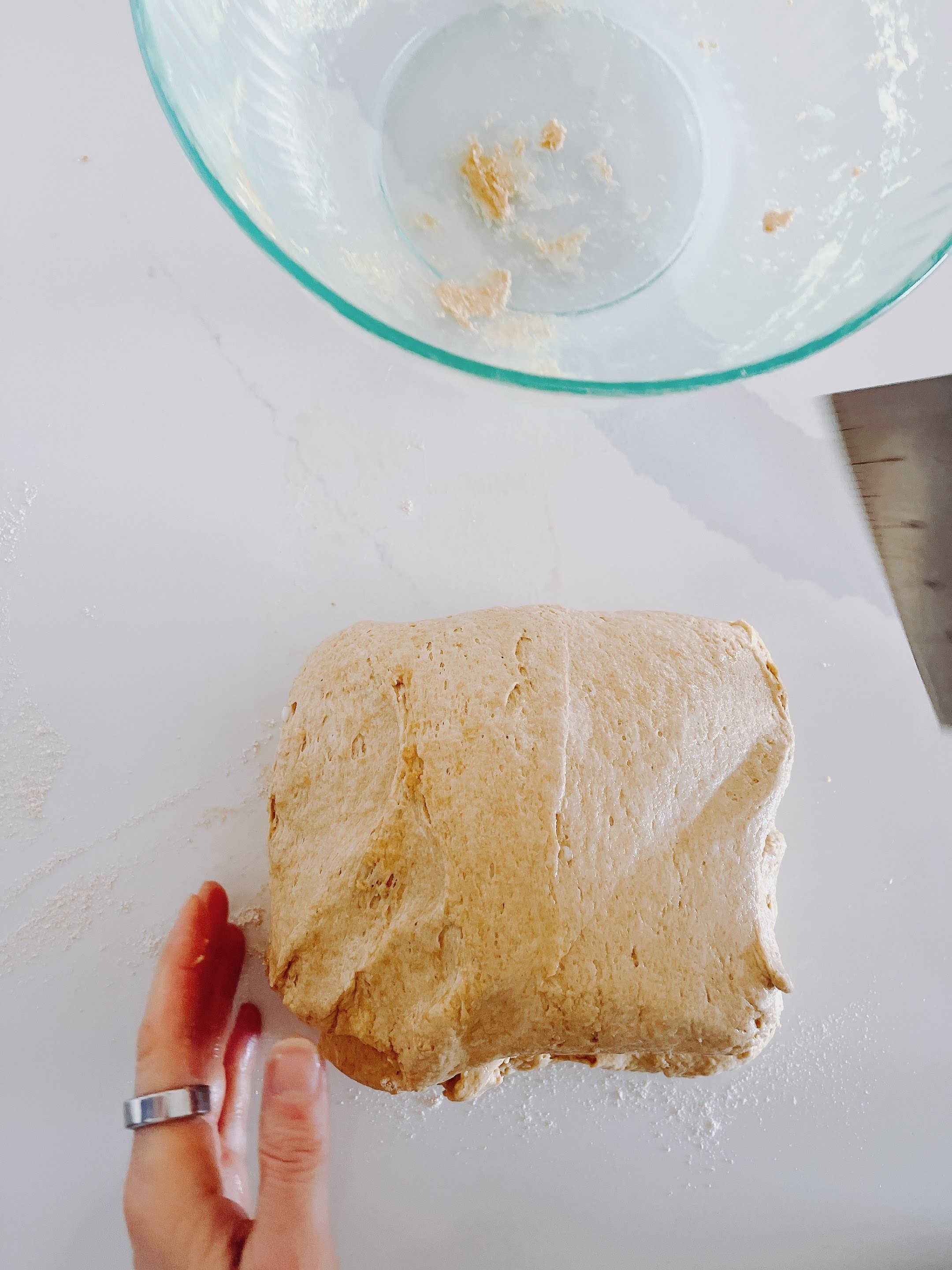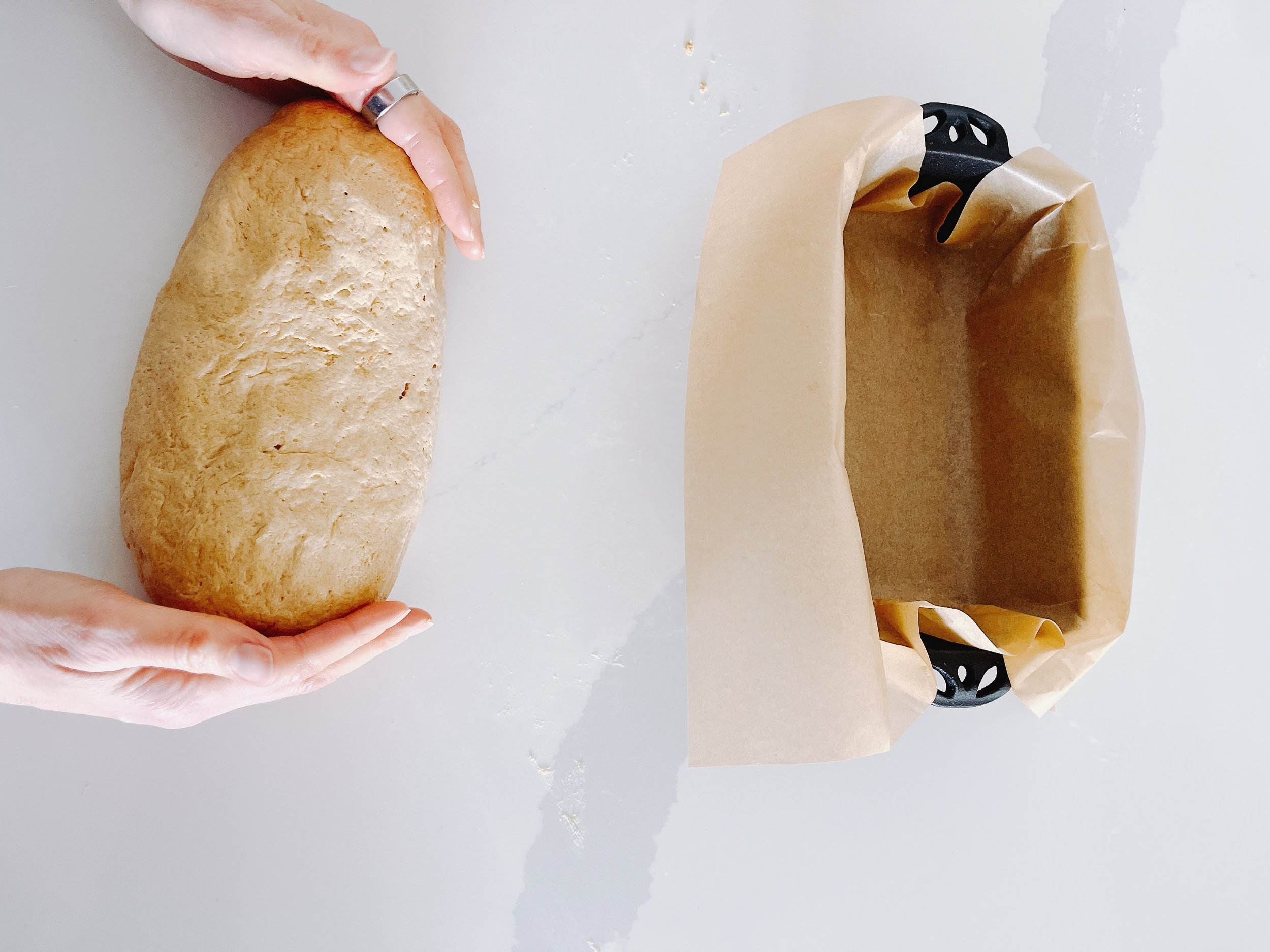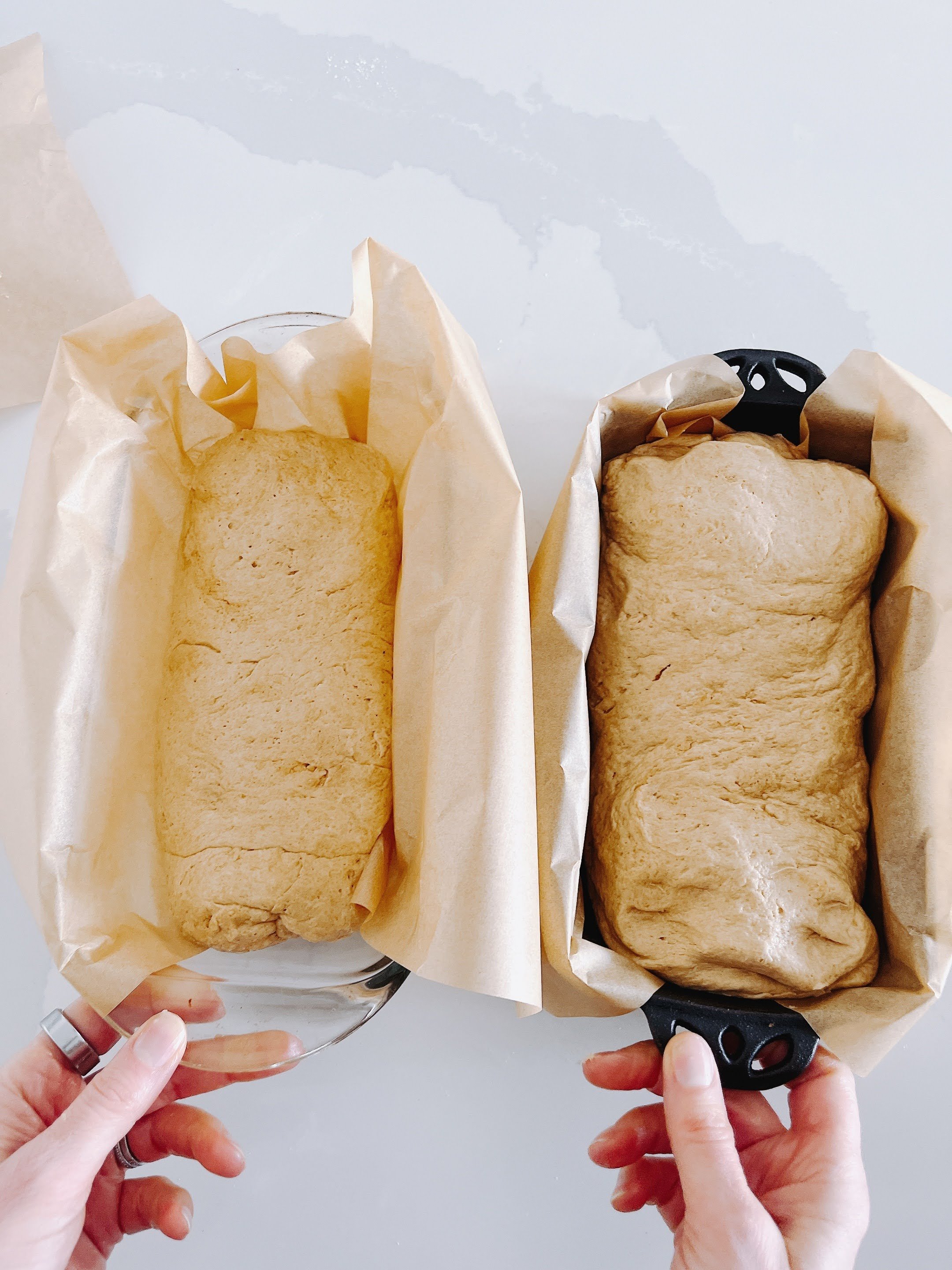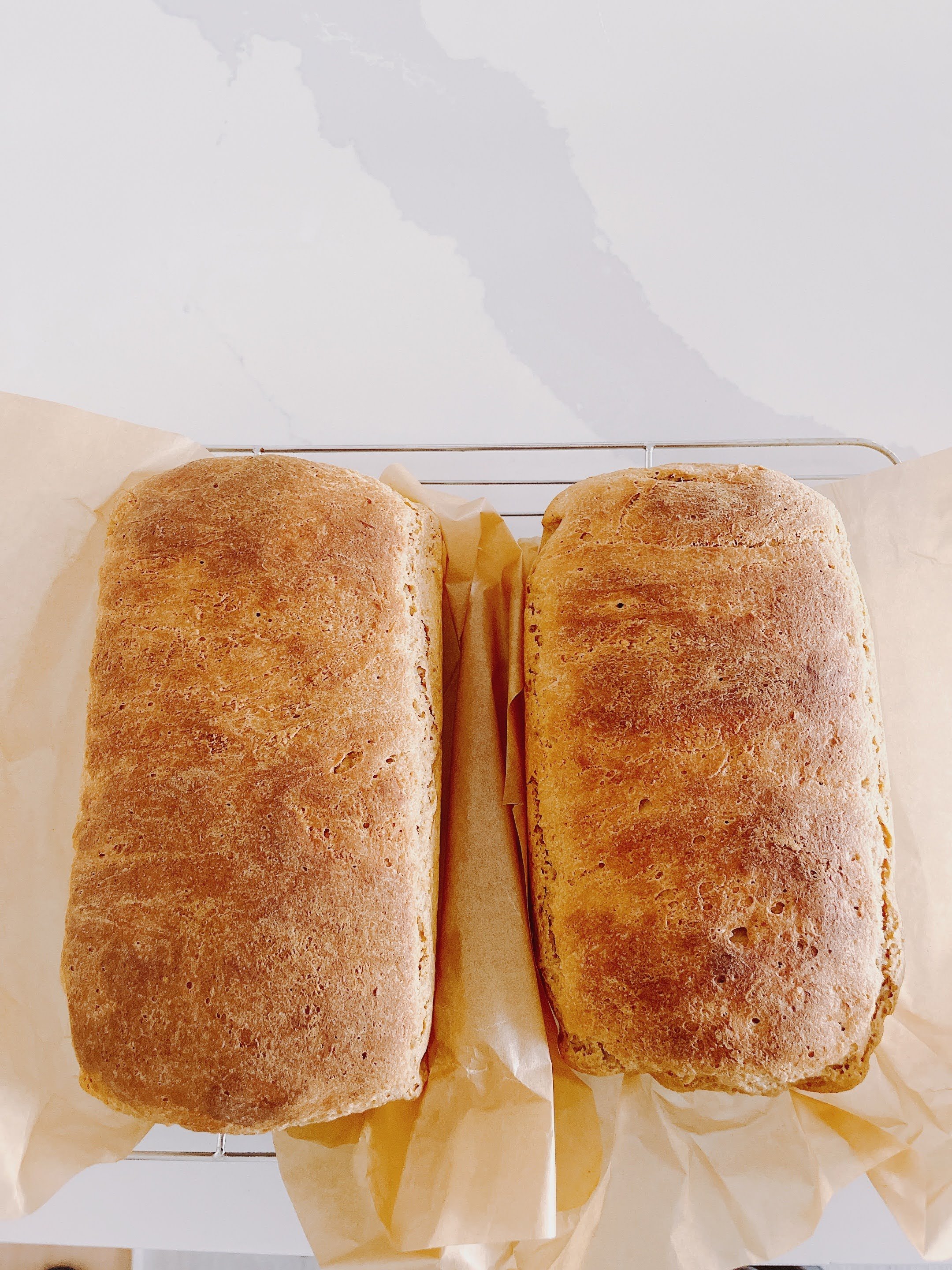The Art of Einkorn Sourdough: Unleashing the Ancient Grain's Fermented Treasure
Hello again, dear readers! Natasha here, ready to share another chapter of my culinary journey with you. Today, I want to take you on a captivating exploration of two extraordinary elements in the world of baking—sourdough bread and the remarkable ancient grain, einkorn.
As my understanding of gluten and its impact on gut health and overall well-being grew, I found myself delving into the realm of different flours and grains. Among them, einkorn stood out, renowned for its lower gluten levels and superior nutrient content compared to traditional whole wheat. The loaves it yielded were nothing short of extraordinary, boasting a delightful combination of nuttiness and sweetness.
Einkorn became an integral part of my quest for the healthiest and most perfect sourdough loaf. However, life took a different turn when I made the decision to embrace a gluten-free lifestyle, following the footsteps of many others in America. For a while, einkorn was set aside as I explored gluten-free alternatives, immersing myself in the world of gluten-free sourdough.
But let me tell you a story of rediscovery and transformation. Through the incorporation of quantum and circadian practices into our family routine, a remarkable shift occurred. Food sensitivities that had plagued us for years seemed to vanish into thin air. It was a transformative experience that left us in awe.
So, my dear readers, join me on this enchanting journey as we intertwine the wonders of einkorn, gluten-free delights, and the profound impact of quantum and circadian practices on our culinary escapades. There's a wealth of discoveries and delectable moments to be savoured with this extraordinary ancient grain.
Why Sourdough?
If you're a bread lover like me, you've probably wondered what makes sourdough so special. Well, let's dive right in and uncover the fantastic benefits of sourdough compared to conventional yeast bread. Trust us, you'll be amazed!
Improved Digestibility
One of the biggest advantages of sourdough lies in its improved digestibility. The wild yeast and bacteria present in sourdough cultures help break down complex carbohydrates and gluten proteins, making them easier on our digestive systems. So, if you've struggled with discomfort after eating bread, sourdough might just be the solution you've been searching for.
Enhanced Flavor
Close your eyes and imagine the heavenly aroma of freshly baked bread. Now, picture that aroma intensified by the delightful tanginess of sourdough. That's right, sourdough bread has a distinct flavor profile that sets it apart from its yeast-raised counterparts. The long fermentation process adds depth and complexity, making each bite a true culinary experience.
Increased Nutrient Availability
When it comes to nutrition, sourdough takes the cake (or should we say, bread?). During the fermentation process, beneficial bacteria break down phytic acid found in grains. This process not only enhances mineral absorption but also increases the availability of vitamins and antioxidants. So, not only do you get to enjoy a delicious loaf of bread, but you also reap the nutritional rewards.
But hold on, let's not forget to mention that there are a few drawbacks to sourdough too. We believe in keeping things transparent, so here they are:
Time and Patience
Sourdough bread isn't your "quick and easy" option. It requires time, patience, and a little bit of practice. The fermentation process can take several hours, or even days, depending on the recipe. So, if you're looking for instant gratification, sourdough might test your patience.
Gluten Content
While sourdough bread is generally considered more digestible than regular bread, it still contains gluten. For individuals with gluten sensitivity or celiac disease, it's essential to explore gluten-free alternatives. However, keep in mind that some people with mild gluten sensitivities might find sourdough more tolerable due to the fermentation process.
So, there you have it - the incredible benefits of sourdough bread along with a couple of considerations. Despite the drawbacks, we firmly believe that the joys of sourdough outweigh any challenges. So, grab your apron, roll up your sleeves, and join us as we embark on this wonderful journey of einkorn sourdough baking. Trust us, your taste buds will thank you!
When is the Best Time to Eat Sourdough Bread?
At our house, we have a little secret when it comes to food - we love eating seasonally! It's all about savoring the flavors that nature provides during specific times of the year, supporting local farmers, and reducing our carbon footprint. And when it comes to sourdough bread, we have a few tips on when to enjoy it best.
You see, there's this fascinating connection between sourdough and the UVB light from the sun. While some may argue that sourdough isn't exactly an ancestral food, many of the grains used in sourdough are grown under intense UVB light during the spring, summer, and early autumn months in the northern hemisphere. That's when these grains soak up all that glorious sunlight and develop their distinct characteristics.
So, if you're a purist who loves sticking to the seasonal eating principle, it's recommended to indulge in sourdough during these peak months when UVB light is at its highest. It's the time when those grains are at their absolute best and packed with their unique flavors and nutrients.
But here's the thing: in our household, we have a bit of a twist. While I strictly follow the seasonal eating rule and limit my sourdough consumption to the peak of summer, my kids have a different rhythm altogether. Their circadian clocks seem to rebound better than ours, and they're allowed to enjoy sourdough all year round. Plus, let's not forget, growing kids need those extra carbs to fuel their adventures!
Now, I must confess that sourdough isn't typically considered a seasonal food. It's become a beloved staple in our home, and my kids can't resist its tangy allure. But I make sure to balance their year-round enjoyment with my commitment to seasonal eating. After all, it's all about finding the right balance and honoring the beauty of each season.
If you're curious to learn more about the wonders of seasonal eating and its effects, I've written a detailed blog post that delves into the topic. It's filled with insights and tips to help you make the most of nature's bounty. Check it here! So, when it's the perfect time to enjoy sourdough, remember to embrace the seasons and savor each delectable bite. Bon appétit!
Why Einkorn?
Let me take you on a journey through my quest for the healthiest and most perfect sourdough loaf. Along the way, I stumbled upon a fascinating grain called einkorn. I fell in love with its unique qualities, only to set it aside temporarily when I decided to go gluten-free for a few years, like many others in America. However, as our family embarked on a path of quantum and circadian practices, something remarkable happened – we witnessed a transformation in our food sensitivities. This prompted us to revisit einkorn and rediscover its wonders. So, what changed? Allow me to share our story.
For nearly seven years, I couldn't enjoy eggs without experiencing digestive discomfort and an eczema flare-up. It was frustrating and disheartening. However, last summer, after implementing our new lifestyle practices, I found myself able to savor eggs without any issues. To my astonishment, the same went for my husband and kids. It was as if a door had opened, and our bodies welcomed these once-troublesome foods with open arms.
Inspired by these changes, we decided to bring einkorn back into our lives. You might be wondering, why einkorn specifically? Well, apart from its delightful flavor, there are several benefits that make it a valuable addition to our diet.
Einkorn is a grain that has a long history, dating back thousands of years. It hasn't undergone extensive hybridization like modern wheat varieties, which means it retains its original genetic composition. This makes einkorn more easily digestible for many people, especially those with gluten sensitivities. While it does contain gluten, some individuals find einkorn to be a more tolerable option.
But the advantages of einkorn go beyond its gluten content. This ancient grain boasts an array of B vitamins, which are essential for energy production, brain function, and overall well-being. It also offers a higher protein content compared to modern wheat, making it a nutritious choice for those looking to incorporate more plant-based proteins into their diet. Additionally, einkorn has a lower Glycemic Index, meaning it causes a slower and steadier rise in blood sugar levels compared to refined wheat products.
However, it's important to note that einkorn is best metabolized in the body when consumed seasonally, during the summer and early autumn months. These are the times when UVB light is strongest, lending its nutritional benefits to the grains that thrive under its influence. So, in our household, we reserve einkorn sourdough for those radiant summer days when the sun's energy is at its peak.
Through our journey, I've learned an important lesson - we don't necessarily need to permanently eliminate foods from our lives. When we prioritize a well-functioning circadian rhythm and align ourselves with the rhythms of nature, our bodies harmonize and become better equipped to metabolize and process a wider range of foods. To dive deeper into the fascinating topic of circadian rhythm and its influence on our relationship with food, I invite you to read my article on the subject.
So, here we are, savoring the deliciousness of einkorn once again. It's a grain that has found its way back into our hearts and our sourdough-loving kitchen. We celebrate its unique qualities and relish the joy it brings to our taste buds. And in this ever-evolving journey of wellness, we're grateful for the lessons learned and the flavors rediscovered.
Recipe links and our favorite loaves
Who’s done einkorn well:
When it comes to baking with einkorn, there are a few talented individuals and resources that have truly mastered the art. Let me introduce you to the pioneers who have done einkorn justice and share some of our all-time favorite recipes.
Carla at Jovial Foods was ahead of her time, bringing einkorn to the mainstream. Her brand, Jovial Foods, can now be found in Whole Foods and through her website. I eagerly purchased her cookbook the month it was released and embarked on a culinary adventure, trying nearly every recipe within its pages. My copy is filled with scribbled notes and memories of delicious creations. Among my personal favorites are her einkorn bagels, boule, and sandwich loaf. Sadly, Carla passed away last year, but her daughter has admirably taken up the reins. You can find Carla's cookbook and explore her website at this link: Jovial Foods Cookbook and Website
Wardee at Traditional Foods Cooking School is another einkorn enthusiast who predominantly bakes with this ancient grain after transitioning from spelt. She offers a class on einkorn baking and provides a wealth of free resources. Her dedication to traditional cooking methods is inspiring.
If you're looking for additional recipes and information, Einkorn.com is a reliable source. They have been in the einkorn game for a long time and offer a variety of recipes, as well as einkorn flour and berries for sale.
Practical tips
When it comes to baking with einkorn, there are some key tips that can greatly improve your results. These tips, which are quite similar to those for gluten-free sourdough baking, will help you navigate the unique characteristics of this beautiful and nutty flour and ensure a delicious loaf every time. Here are some important considerations:

1. Invest in a basic kitchen scale: Weighing your einkorn flour will result in a more consistent loaf. Since einkorn has a different protein structure and lower gluten content compared to traditional wheat, it's important to accurately measure the ingredients. Additionally, when working with or converting from all-purpose einkorn to whole wheat einkorn, increase the amount of water or liquid by 5% to maintain the desired consistency.

2. Grind your own grain: Grinding your own einkorn grain ensures freshness and allows you to have better control over the texture of the flour. Consider investing in a grain mill for this purpose. As an added bonus, you can also sift the flour to remove any larger particles, resulting in a smoother and lighter final product.

3. Knead less: Einkorn dough can become sticky if over-kneaded, which can be frustrating, especially for beginners. To avoid this, knead the dough just enough to bring it together. You'll find that working with a slightly wetter dough and having more flour on your hands rather than in the dough itself helps to handle it more easily.

4. Use a shaped loaf pan when starting: When you're new to baking with einkorn, using a shaped loaf pan can provide better support for the dough as it rises and bakes. This can help you achieve a well-formed loaf with a more even texture. One of my personal favorite recipes is a whole wheat einkorn sandwich bread loaf (see below for the recipe).

5. Let the bread cool completely: It's essential to allow your einkorn bread to cool completely before slicing into it. Einkorn has a weaker gluten structure, so slicing into a warm loaf can cause it to crumble. By allowing it to cool fully, you'll achieve a better texture and easier slicing.

6. Don't overproof: Overproofing your einkorn dough can lead to issues such as deflating in the oven or excessive air bubbles in the loaf. It's better to slightly underproof your dough, as this will help maintain its structure and create a more balanced rise during baking.

7. Stick with an all-purpose starter when starting out: If you're new to sourdough baking with einkorn, it's recommended to use an all-purpose starter rather than a whole wheat starter. An all-purpose starter tends to hold up better and provides a more favorable flavor profile. Once you gain more experience, you can experiment with different starter variations.
By following these practical tips, you'll be well on your way to baking delicious einkorn bread. Remember that even your worst loaf will still be a fantastic homemade bread, thanks to the unique qualities of this ancient grain. Enjoy the process, and savor the sweet, nutty flavors that make einkorn bread truly special.
My favorite recipes
Here are some of my favorite einkorn recipes that I highly recommend trying out:
Sourdough Starter: This is where my einkorn baking journey began. I particularly love Carla's starter because it has a stiff consistency, allowing it to withstand periods of refrigeration for 1-2 weeks without needing to be refreshed. It also uses a minimal amount of flour, which helps prevent wastage.
30 Traditionally Prepared Einkorn Recipes: If you're looking for a variety of einkorn recipes, this resource is fantastic. It offers a collection of great recipes all in one place, giving you plenty of options to explore.
Einkorn Sourdough Bread by The Perfect Loaf: This was one of the first bakers I learned from when it comes to sourdough. The website provides excellent tutorials, detailed recipes, and explanations that approach baking with a scientific and mathematical precision.
Einkorn Sourdough Artisan Bread by Jovial Foods: This recipe is a perfect starting point for baking with einkorn. Although it's 100% all-purpose flour, it still yields a fluffy and delicious loaf. If you prefer using whole wheat flour, you can easily modify it accordingly
100% Whole Grain Einkorn Wheat Sourdough Bread by My Daily Sourdough Bread: This recipe focuses on utilizing 100% whole grain einkorn flour, resulting in a wholesome and nutritious sourdough bread. It's a great option for those seeking a fully whole grain experience.
Einkorn Butter Drop Biscuits by Jovial Foods: These biscuits are incredibly easy to make. I personally use 100% whole wheat flour and increase the amount of cold milk by 5%. They turn out just as delicious without the need for rolling or cutting.
Einkorn Buttermilk Biscuits by Jovial Foods: Give these biscuits a try using whole wheat flour. The recipe offers a delightful twist on traditional buttermilk biscuits, and whole wheat flour adds a nutty flavor and extra nutrition.
Einkorn Sourdough Bagels Recipe by Jovial Foods: While this recipe requires multiple steps and time, the result is worth it. These einkorn bagels are even better than the iconic ones you find in New York City. I make them using a blend of 50% all-purpose flour and 50% whole wheat flour, which adds a delightful nuttiness and slight tang. This is especially fun to make with the kids!
Whole Grain Einkorn Chocolate Chip Cookies by Jovial Foods: These cookies are simple, easy to make, and incredibly mouthwatering. They are a huge hit!
Easy Einkorn Bread Recipe by Jovial Foods: If you prefer using active dry yeast instead of sourdough, this recipe is a great choice. It provides clear instructions for making a delicious einkorn bread. When sourcing active dry yeast, consider an organic yeast without emulsifiers. See my GF sourdough baking post for sources.
Whole Grain Einkorn Pancakes by Jovial Foods: These pancakes are simply the best. The combination of yogurt (or kefir) with flax gives them a delightful flavor and texture. I recommend using coconut sugar or maple syrup instead of brown sugar. For an even better result, try soaking the pancake batter in kefir or yogurt overnight.
Out of all the loaves I've baked, my hands-down favorite is a versatile einkorn bread with a beautifully risen and well-formed shape. The addition of honey provides a touch of sweetness, while the butter and milk contribute to a softer crumb. However, feel free to omit the butter and honey if you don't have them on hand and use water as a substitute.
100% Whole Wheat Einkorn Sourdough Sandwich Loaf
(Adapted from Jovial Foods)
For more information about hydration in sourdough, you can read this article.
Tips:
Double the recipe which makes two loaves in nearly the same amount of time. Once cooled, slice and freeze one loaf for later use, and wrap the other loaf to enjoy fresh or toast with raw grass-fed butter. In our home, a loaf doesn't last more than a couple of days.
Do not let the dough rise until many bubble appear (overproofing will yield an airy loaf that may not slice or hold up well)
Freezer: Cut small pieces of parchment between each slice to make it easier to separate.
Jovial Foods has a great video demonstrating the technique for making the sandwich loaf.
Where to Buy Einkorn
Nowadays, there are more companies selling einkorn compared to when I first started baking with it. Prices may vary, but here are some recent prices I have found:
| Type | Qty (lb) | Price | Price per lb | Price by oz | Vendor | Website |
|---|---|---|---|---|---|---|
| Berries | 48 | $143.00 | $2.98 | $0.19 | Einkorn.com | Einkorn.com |
| Berries | 10 | $34.00 | $3.40 | $0.21 | Jovial | Jovial Foods |
| All purpose | 10 | $35.27 | $3.53 | $0.22 | Jovial | Jovial Foods |
| All purpose | 40 | $143.00 | $3.58 | $0.22 | Einkorn.com | Einkorn.com |
| Berries | 25 | $89.95 | $3.60 | $0.22 | Blue Bird Farms | Blue Bird Grain Farms |
| Berries | 25 | $89.25 | $3.57 | $0.22 | Small Valley Milling | Small Valley Milling |
| All purpose | 20 | $73.00 | $3.65 | $0.23 | Blue Bird Farms | Blue Bird Grain Farms |
| Berries | 5 | $22.00 | $4.40 | $0.28 | Healthy Traditions | Einkorn Flour Collection |
| Berries | 35 | $170.00 | $4.86 | $0.30 | Healthy Traditions | Einkorn Flour Collection |
| All purpose | 5 | $25.00 | $5.00 | $0.31 | Healthy Traditions | Einkorn Flour Collection |
| Berries | 26.5 | $133.00 | $5.02 | $0.31 | Pleasant Hill Grain | Grain Mills |
Additional information:
How to store sourdough bread: For detailed instructions on storing sourdough bread, please refer to the "GF Sourdough Post" where you can find specific guidance on the best practices for storing gluten-free sourdough bread.
Milling your own grain: If you're interested in milling your own grain, I recommend checking out the "GF Post" where you can find valuable information and resources on milling gluten-free grains at home. It will provide you with insights on the equipment needed and the step-by-step process of milling your own grains for baking purposes.
To Wrap it Up
The journey of exploring einkorn sourdough has been a remarkable one. The combination of sourdough bread and einkorn, an ancient grain, has brought about incredible benefits and flavors. Sourdough bread offers improved digestibility, enhanced flavor, and increased nutrient availability compared to conventional yeast bread. While there are considerations such as time and patience required for sourdough baking and its gluten content, the joys of sourdough outweigh any challenges.
Einkorn, with its lower gluten levels and superior nutrient content, has become a valuable addition to our culinary endeavors. It is easily digestible for many people and offers an array of B vitamins and higher protein content compared to modern wheat. Embracing a well-functioning circadian rhythm and aligning ourselves with the rhythms of nature has allowed us to reintroduce einkorn into our lives and experience the transformation of food sensitivities.
When it comes to baking with einkorn, practical tips such as weighing the flour, grinding your own grain, kneading less, using a shaped loaf pan, allowing the bread to cool completely, and avoiding overproofing can greatly improve your results. Starting with an all-purpose starter and gradually experimenting with different variations can also enhance your einkorn sourdough baking journey.
Overall, the wonders of einkorn sourdough are worth exploring and savoring. With its unique qualities, delightful flavors, and potential health benefits, einkorn sourdough bread adds a special touch to our culinary experiences. So, grab your apron, roll up your sleeves, and embark on this enchanting journey of einkorn sourdough baking. Your taste buds will thank you!











